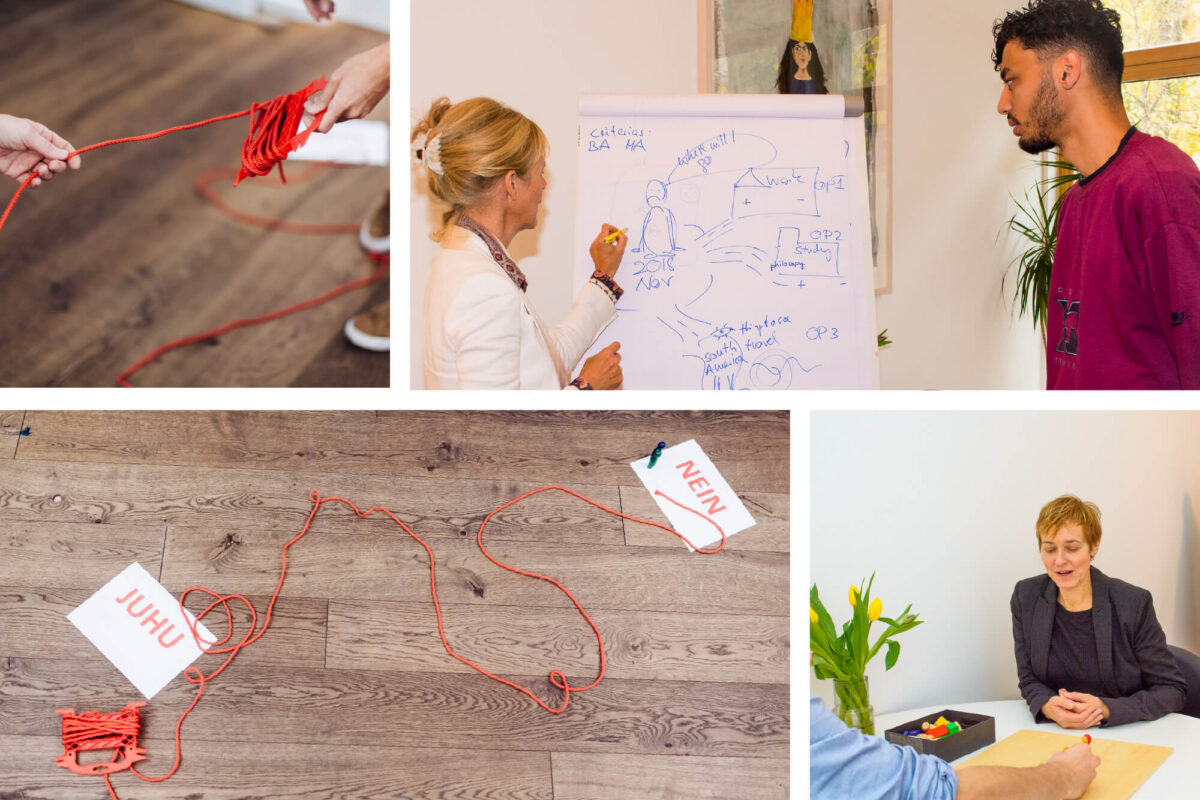What is supervision?
Supervision is a regulated form of collegial counseling. It enables solution-oriented reflection on daily work and special tasks or challenges.
In supervision sessions, colleagues share depressing experiences or stressful events with each other and gain new perspectives on conflicts or other difficult situations.
Thanks to our professional support, the exchange in supervision sessions remains constructive and respectful.
Regular supervision provides relief on a personal level, enables a change of perspective, promotes mutual understanding and strengthens team cohesion.
Our methods
-
Through our mix of methods, we address both the cognitive and emotional levels of people. The conscious alternation has been proven to lead to sustainable learning that is also applied in everyday life.
-
We work with resource-oriented consulting methods, solution-oriented questions and take into account team dynamics and other systemic contexts. We can work on an issue that is currently acute or support you in finding solutions to recurring challenges in your day-to-day work.
Examples of helpful questions in supervision
-
What is effective and can stay?
-
How can we improve our collaboration?
-
In what phases of work can personal differences challenge us?
Possible forms of supervision at SEQUOYA
The aim of every supervision is to provide relief, promote new perspectives and develop solutions. However, supervision sessions can differ in their thematic focus and setting.
Case Supervision
Case supervision is about a specific case in the practice that is brought in by a team member. The aims can be: to relieve pressure by discussing the personal challenge, to get to know other perspectives on the case, to advise on possible solutions.
Case supervision can take place in a group (e.g. in a team) or as part of individual supervision.


Team Supervision
Team supervision is about exchanging ideas within the team about collaboration and communication, structures and work processes
and other overarching team topics.
The most important goal of team supervision is usually to improve cooperation so that more energy can be put into operational work and less energy into dealing with internal conflicts.
Individual Supervision
In individual supervision, team members and supervisors reflect on current challenges in their day-to-day work in 1:1 sessions.
in everyday working life, difficult situations or conflicts.
In individual supervision, there is also room for very personal topics that you may not want to discuss in front of a larger group. The setting can be very effective for growing in and through crises.


Management Supervision
Management supervision provides managers with support in their professional capacity to act.
Management supervision can take place as an individual session or in a group for a management team. It can be about specific cases in a manager’s day-to-day work (case supervision) or about challenges within a management team (team supervision).
Acute Supervision
Acute supervision is a supported collegial consultation following a stressful incident.
When working with people, there are sometimes serious incidents that affect, touch or even shock everyone in the team.
shocked. Acute supervision helps to process the stressful incident. There is space in a protected environment for unpleasant feelings such as anger, shock or sadness. And together we consider what would be a good way to deal with them.

